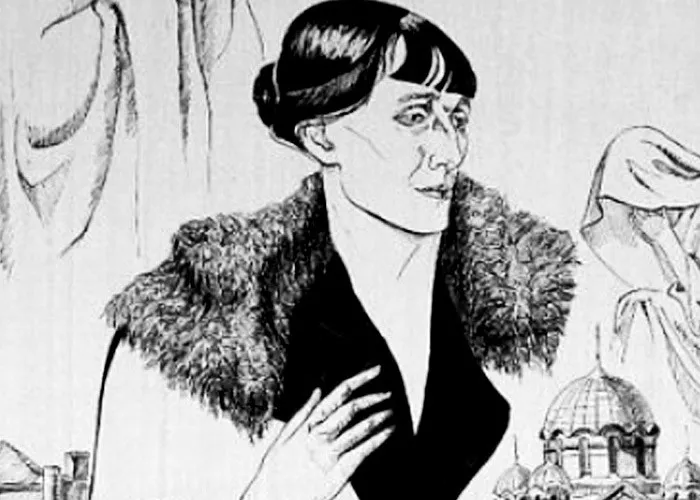Welcome to Poem of the Day – Greetings by Anna Akhmatova.
Anna Akhmatova, one of the most revered poets of 20th-century Russian literature, captured the turbulent essence of her times with a poignancy that resonates beyond her era. Her poem “Greetings” exemplifies her profound sensitivity to the nuances of human emotion and the inescapable forces of history. Through the lens of personal loss and a deep connection to the cultural and political upheavals of her time, Akhmatova explores themes of memory, identity, and the passage of time.
Greetings Poem Explanation
“Greetings,” written in 1940, comes at a pivotal point in Akhmatova’s life and career. This period was marked by personal hardship and national strife, as the Soviet regime, under Stalin, tightened its grip on the country. Akhmatova herself was living through the weight of the Stalinist purges, with her first husband executed, her son imprisoned, and her work censored. Yet, despite these personal and political upheavals, her poetic voice remained steadfast, capturing the essence of grief, longing, and resilience. “Greetings” is an introspective meditation on the passing of time, the pain of separation, and the silent endurance of love.
The Theme of Memory and the Passage of Time
The central theme in “Greetings” revolves around memory and the relentless flow of time. Akhmatova addresses the notion of how time distorts the perception of both the past and the present. In the opening lines of the poem, she introduces the idea of a distant memory, one that has been clouded by the passage of years but remains vivid enough to evoke both longing and pain. The poem’s title itself—Greetings—suggests that the speaker is acknowledging something from the past that has returned, like an old friend or a faded image from another time. This gesture of greeting is not just a casual acknowledgment but a moment of reunion with something that has been lost or forgotten.
Akhmatova’s poetic voice is often one of quiet contemplation, and in “Greetings,” she reflects on the years that have passed and the irreversible changes time has wrought. Through her verses, we feel the tension between the desire to hold on to the past and the inevitability of moving forward, a feeling that resonates deeply with readers of all eras.
The Role of Separation and Loss
Another key theme in the poem is the emotional weight of separation and loss. Akhmatova’s personal life was filled with tragedy and separation, and these experiences permeate her work. In “Greetings,” the speaker’s tone reflects a sense of isolation, both in the physical and emotional sense. The poem conveys a deep sense of melancholy as the speaker reflects on how the passage of time has created a chasm between herself and what was once intimately familiar. This sense of alienation, particularly in a time of political repression, adds another layer of depth to the poem.
Akhmatova’s use of language is strikingly sparse but full of emotion, capturing the painful emptiness of being separated from something—or someone—important. The absence in her words speaks as loudly as the words themselves, and this silence is as much a part of the poem’s emotional landscape as the descriptions she provides. The juxtaposition of presence and absence, of greeting and mourning, defines the emotional core of the poem.
Akhmatova’s Subtle Political Commentary
While “Greetings” can be read as a personal meditation on the themes of memory and loss, there is also an undercurrent of political commentary. Akhmatova’s work is often seen as a response to the oppressive political climate of her time, and “Greetings” is no exception. The sense of loss and separation in the poem may be a metaphor for the larger societal disconnect caused by Stalin’s purges, which tore families apart and created an atmosphere of fear and distrust. The political context of the poem is not overtly stated but rather implied through the themes of absence and the difficulty of reconnection. The poet speaks to a larger, collective experience of alienation and displacement.
A Universal Poem of Resilience and Survival
At its core, “Greetings” is a poem of survival. Though the speaker is haunted by the passage of time and the grief of separation, there is also an undeniable resilience in her voice. The act of greeting something from the past suggests that, despite the ravages of time, the speaker continues to carry these memories with her. It’s an act of defiance, a refusal to be completely consumed by loss. In this way, the poem becomes a testament to the endurance of the human spirit in the face of adversity.
Conclusion
“Greetings” by Anna Akhmatova, like much of her work, is marked by its lyrical simplicity and emotional complexity. Through her sparse yet powerful language, Akhmatova captures the delicate interplay between memory, loss, and survival. The poem is both intensely personal and universally relevant, as it speaks to the way time shapes our understanding of the past and forces us to come to terms with the absence of what we have lost.
Akhmatova’s ability to convey deep emotional truths with such clarity is part of what makes “Greetings” such a powerful work of poetry. Through her words, we are reminded of the inevitability of change and loss, but also of the quiet strength that allows us to endure. The poem’s themes of memory and resilience continue to resonate, offering a poignant meditation on the human experience that transcends the specific historical moment in which it was written. In “Greetings,” Akhmatova speaks to the universal and timeless nature of grief, love, and survival.

